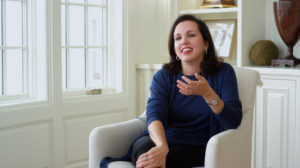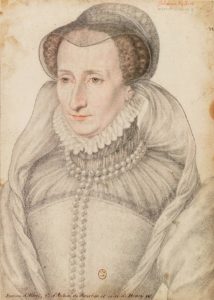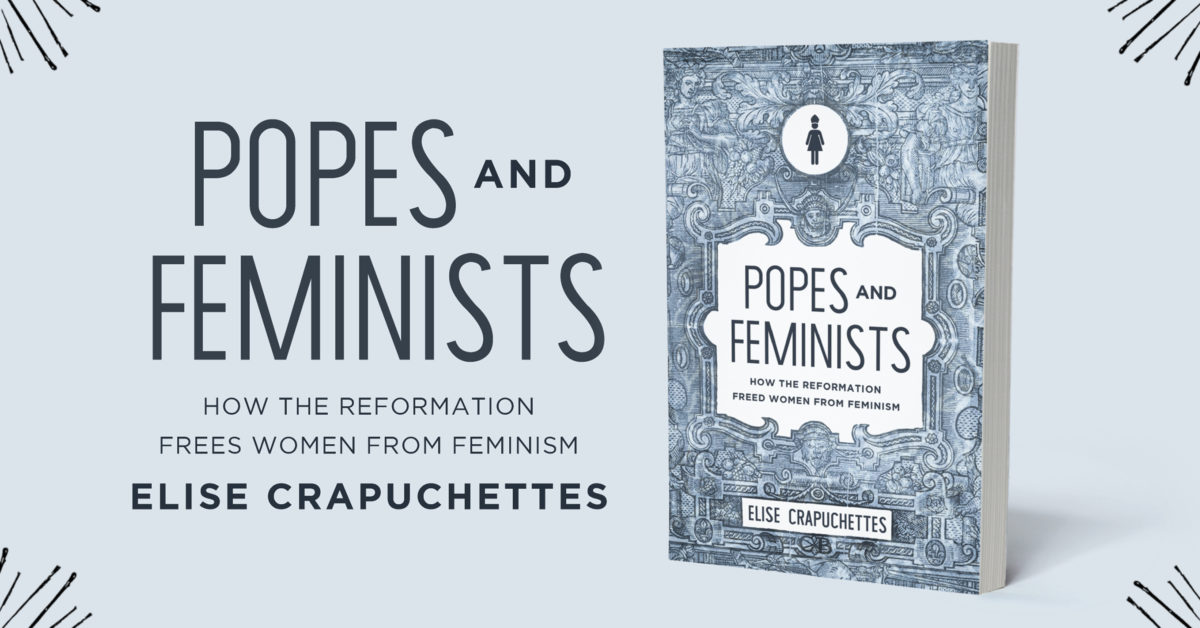Elise Crapuchettes’ work could hardly come at a more apropos time. Even within the evangelical church, this year has seen a new wave of Christian feminism, symptomatic of the continued unease which women feel in their vocations. Is the answer to go assert perceived rights in church leadership as a means of validating our womanhood? Or can we find validation outside of specifically spiritual vocations?
Christian and non-Christian women alike are bombarded with the message that “real,” fulfilling work happens outside the home. Feminists tell us that leaving the workforce to have children and raise them is a waste of our potential. Popes and Feminists: How the Reformation Frees Women from Feminism is a breath of fresh air, bringing answers to these questions from a historical, thoughtful, and biblical perspective.
Elise Crapuchettes begins her tale by telling us her own story, and how she became convinced that she ought to go into “full-time Christian work,” in spite of her desire to primarily be a wife and mother. Fast forward past law school, divinity school, marriage, and 5 kids, and she began to realize that there was in fact more to vocation than full-time ministry.

Elise began researching the role of women in the Reformation, and how they set the example for what it means to be a godly Christian woman fully living out her vocation. Elise draws fascinating parallels between the medieval church’s view of vocation, and modern feminism’s view of vocation in the context of motherhood. The pre-Reformation church had a tendency to place a premium on sacred vocations—you could become a nun, or you could do the less holy thing and become a mere wife and mother (and often end up in a purely pragmatic marriage for political alliances’ sake). (The same view applied to men, but that’s a topic for another book.)
The women of the Reformation (and the men around them) turned this worldview upside down. Many women even left the convents they were cloistered in and married, to the horror of the Roman church and their families. But many found true freedom in Christ in their new callings. They began to realize that the work they did in serving their homes, being helpmeets to their husbands, raising children, and exercising their many and diverse God-given talents was just as much holy work as the “ora et labora” (“work and prayer”) with which they filled their convent days with. As Martin Luther and other reformers taught, all work is holy work to God.
Elise brings us along on a fascinating whirlwind tour of the lives of no less than seventeen women who all served the God in various ways through the work God had called them to. Some are names you may have heard, like Katie Luther or Jeanne d’albert, but many are little-known heroes, like Olympia Morata or Louise de Coligny. Some left a legacy through being a helpmeet to their husbands, some were authors, some held political power. But regardless of earthly position or honor, all served God and knew that they could best serve him on His terms, not the terms of the culture around them. Elise thoughtfully highlights the multi-faceted nature of these women’s vocations—Katherine (Von Bora) Luther, for example, held down more jobs than many a career woman could imagine, as she ran a house, a farm, a brewery, raised children, fed boarders, and more.

The book wraps up with a brief discussion of what these stories and this Reformational legacy mean for us as twenty-first century women. The women of the Reformation stood against the tide of their culture, and found marriage and motherhood to be worthy, God-glorifying vocations. Likewise, Elise inspires us to live more fully, more sacrificially, more courageously, and more biblically for Christ, whether in tending toddlers, feeding a crowd, or, like Jeanne d’Albret, commanding an army.
We live in a confused culture. Popes and Feminists brings clarity and truth, cutting through the lies of feminism and bringing to light the stories from our sisters in Christ of another century, whose shoulders we can stand on as we find our place in this century.


